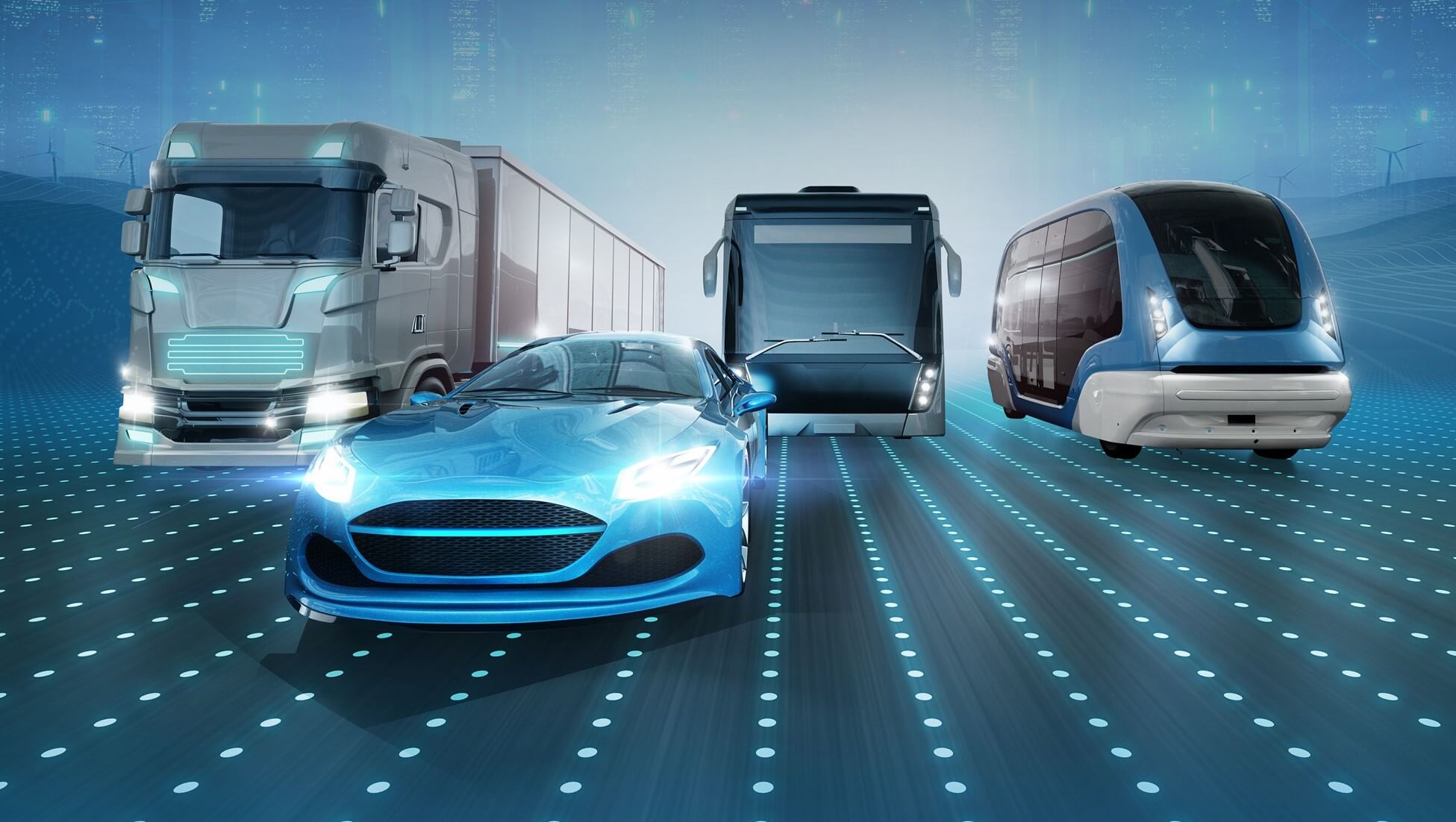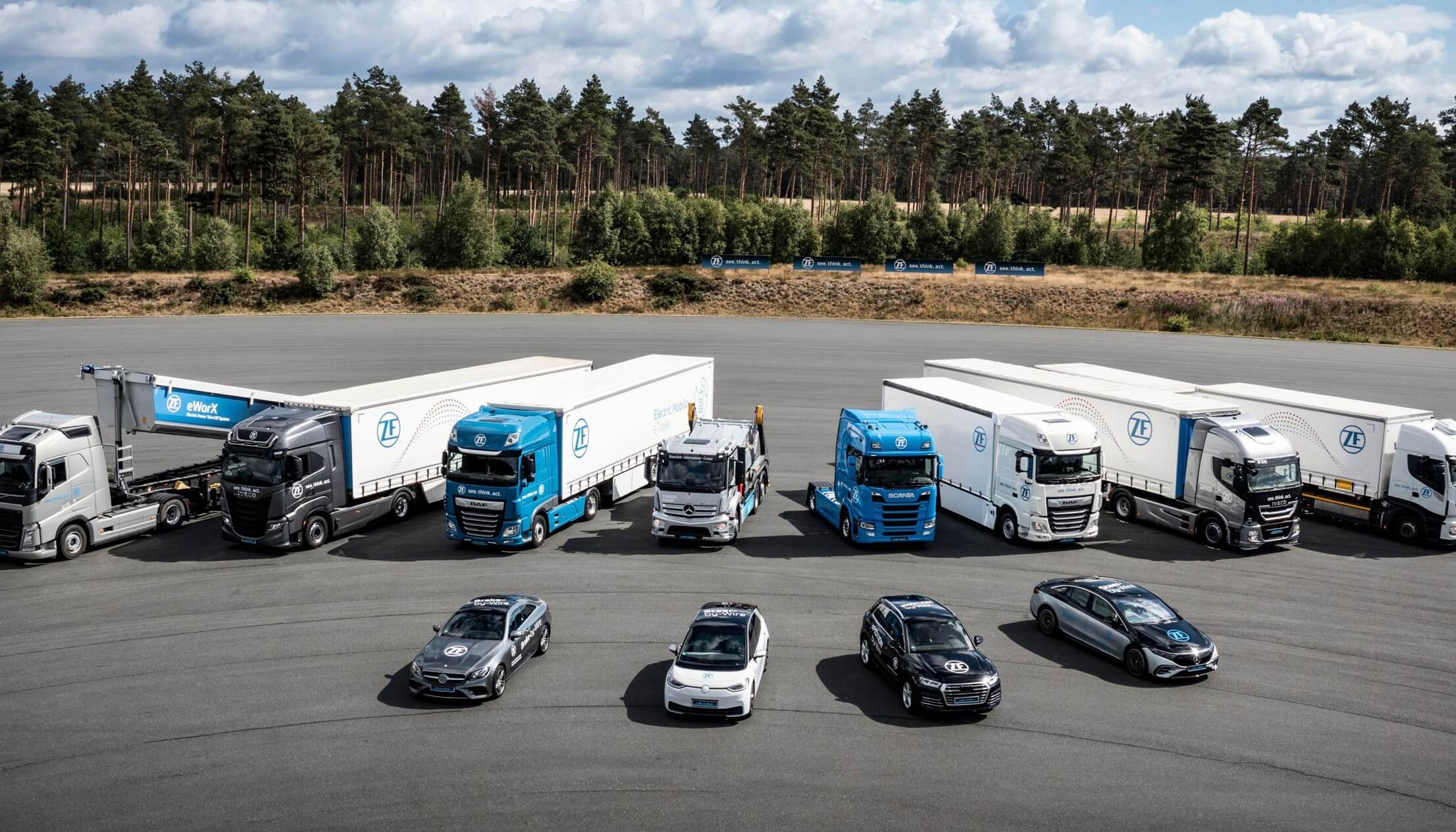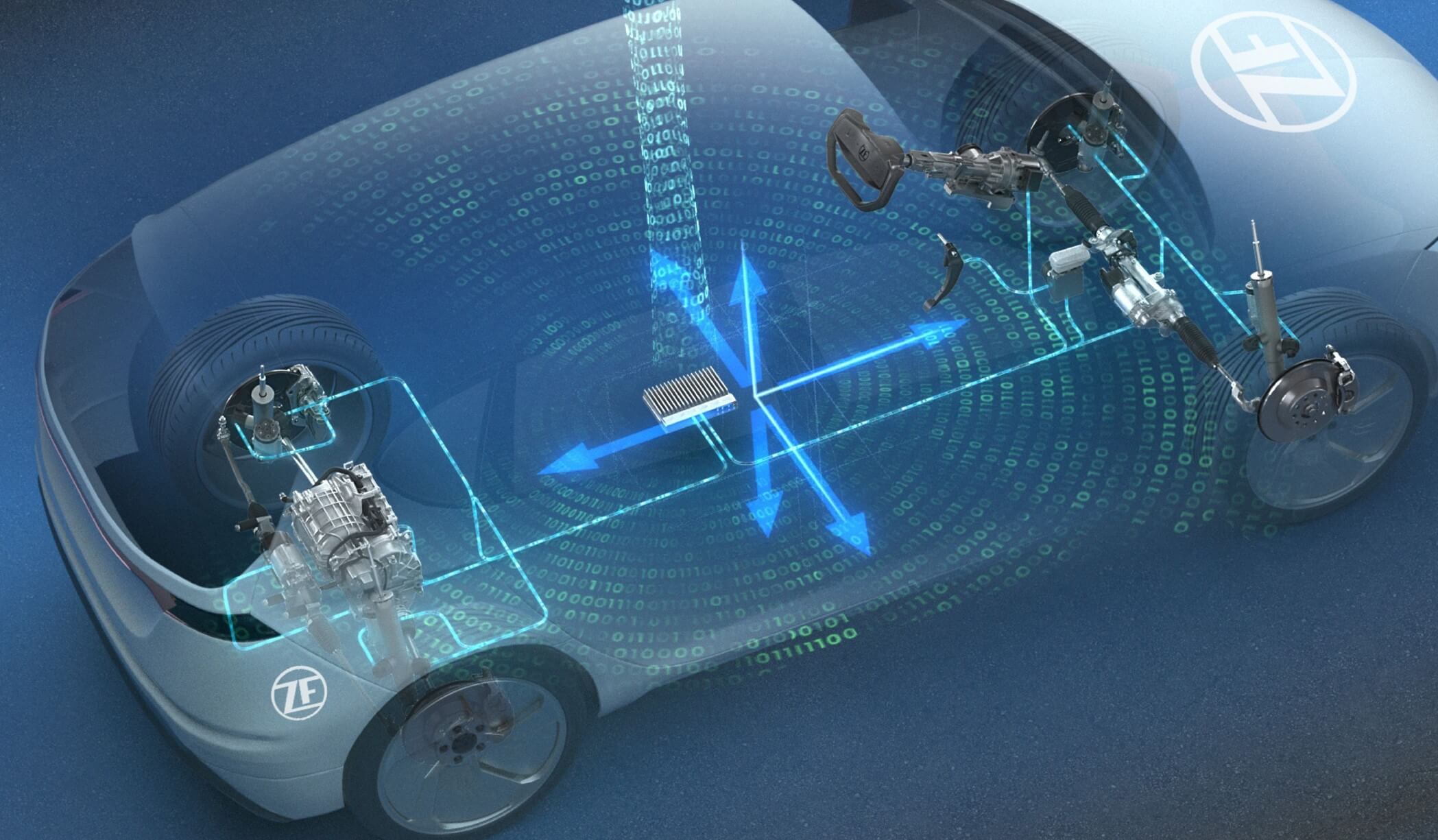ZF’s new R&D hub is already creating the next generation of electro-mobility systems.
Automotive component company ZF has completed work on a state-of-the-art technical centre in the UK at a cost of $125 million. The 20,500sqm site is one of a number of research and development hubs the company has around the world and adds to ZF’s tally of production facilities.
Covid restrictions meant that although the tech hub was completed in 2021, it has taken another year for it to become fully staffed and operational.
The hub is used for research and development of aftermarket products, advanced driver assistance systems (ADAS), race engineering and steering and braking and powertrains. It is also a ZF centre of competence for three key technology areas within the company globally, including cyber penetration testing, electronics components and servo drives.
The facility has already been involved in work on the next generation of ZF’s electric motors, announced this week. The company says that by 2030, it expects 47 million electric vehicles to require 61 million electric drive motors, expecting an average of 1.3 e-drives per vehicle as demand increases for all-wheel-drive EVs.
ZF says it already has an order book worth more than $39 million for its next-generation e-motor, which will be released as a complete unit to the market in 2025. It’s a much more compact unit than before, focused on the requirements of 10 per cent less installation space, higher power density, greater efficiency and high flexibility. Sustainability was also a key part of development and the new e-motor uses 10 per cent fewer raw materials.
It’s a critical part of the business for ZF, which is still seen by many as a transmission company, but member of ZF’s board, Stephan von Schuckmann, says that side of the business faces a major ramp-down after 2025.
It’s not the only area where ZF is expanding its business and the new UK tech hub will play a major role in developing new technology, some of which could change the auto industry significantly.
This includes a new steer-by-wire system using software to replace traditional mechanical steering ratios. It will also allow for a storable steering column using actuators to make the steering wheel disappear into the dashboard for autonomous driving. It’s a technology the industry has been calling for, according to ZF, and adds to its existing brake-by-wire systems.
Engineers also work on ADAS, with ZF having created its first forward radar early this century. Now it is finishing development of its event generation front and surround radar system, which will go into production in 2024.
All of this requires extensive testing and, as well as a small on-site vehicle test road, there is an ADAS simulation facility and a large electromagnetic compatibility test lab that can test electric components and motors up to 800V. It’s the largest EMC lab in the ZF group and includes e-drive test chambers and seven climatic test cells, all of which can test anything from initial components to full vehicles, including race cars.
Requiring less physical space is a cyber security department, where dedicated technicians view every piece of connectivity in a vehicle as a potential hack point. They not only assess vulnerabilities but also develop solutions, ideally before any issues arise within the architecture of a complete car.
Mark Smyth






